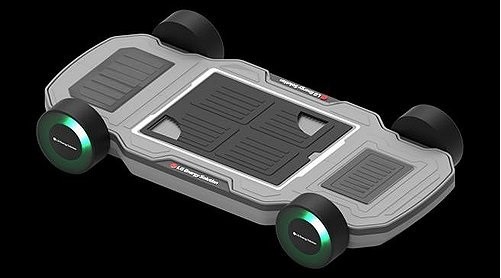In the context of increasingly fierce competition in the global electric vehicle industry, Renault Ampere's lithium iron phosphate strategy is not only a positive response to market demand, but also a far-reaching layout for future technology development. This article will provide an in-depth analysis of Renault Ampere's cooperation with CATL and LG Energy Solution, and explore the business logic and technical prospects behind this strategy.
China Overseas Semiconductor Network will combine Renault Ampere's lithium iron phosphate strategy, CATL's cooperation background with LG Energy Solution, and the innovative features of Cell-to-Pack technology. Through in-depth analysis, we aim to provide readers with a comprehensive, objective perspective to better understand the impact and significance of this strategic partnership on the EV industry.
Lithium iron phosphate batteries: a dual choice of market and technology
Lithium iron phosphate batteries (LFPs) are becoming the new favorites in the market due to their cost-effectiveness, safety and long cycle life. According to market research data, lithium iron phosphate batteries cost about 20% less than nickel-cobalt-manganese (NCM) batteries, while performing better in terms of safety and thermal stability. Renault Ampere's choice of lithium iron phosphate technology is an accurate grasp of the current market trend.

Photo: Renault Ampere's lithium iron phosphate batteries will be supplied by CATL and LG Energy Solution
CATL and LG Energy Solution: The supply chain advantage of a strong alliance
As the world's leading battery manufacturers, CATL and LG Energy Solution provide a solid supply chain guarantee for Renault Ampere with their technical strength and production scale. CATL's plant in Hungary and LG Energy Solution's plant in Poland will provide Renault Ampere with a stable supply of lithium iron phosphate batteries. This cooperation not only strengthens the competitiveness of Renault Ampere in the European market, but also opens up a broader market space for the two battery manufacturers.
Five-year contract: 39 GW of energy commitment and market potential
Renault Ampere's five-year contract with LG Energy Solution is expected to provide 39 GW of LFP battery packs, enough to support the use of 590,000 electric vehicles. This huge figure not only demonstrates Renault Ampere's strong confidence in the future electric vehicle market, but also reflects the potential of lithium iron phosphate batteries to meet the needs of large-scale markets.
Technological innovation: Cell-to-pack technology has a cost advantage
Ampere's cell-to-pack technology, developed in collaboration with LG Energy Solution, is an important innovation in battery manufacturing. By omitting the module link in the traditional battery pack and directly integrating the battery cells into the battery pack, this technology can improve the energy density of the battery pack, while reducing production costs and improving assembly efficiency. Ampere expects the integration of this technology to reduce the cost of automotive batteries by about 20% from 2026.
Conclusion: The strategic significance and market prospect of the triumvirate alliance
Renault Ampere's lithium iron phosphate strategy is a comprehensive layout of the supply chain, technical route and market development of the electric vehicle industry. Through the cooperation with CATL and LG Energy Solution, Renault Ampere not only ensures the stability and cost-effectiveness of battery supply, but also wins a technological advantage and market opportunity for itself in the highly competitive electric vehicle market.






